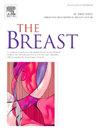Prognostic significance of receptor conversion following neoadjuvant therapy in breast cancer: a systematic review & meta-analysis
IF 7.9
2区 医学
Q1 OBSTETRICS & GYNECOLOGY
引用次数: 0
Abstract
Purpose
Receptor conversion following neoadjuvant therapy in breast cancer may influence prognosis and adjuvant treatment decisions. This systematic review and meta-analysis evaluated the prognostic significance of changes in hormone receptor (HR) and HER2 status after neoadjuvant therapy.
Methods
This study was performed in accordance with PRISMA guidelines. A systematic search of the literature was conducted to identify studies assessing the prognostic effect of receptor conversion after neoadjuvant treatment in breast cancer. Studies reporting receptor status before and after neoadjuvant therapy, with associated survival outcomes, were included. Pooled hazard ratios (HRs) for disease-free survival (DFS) and overall survival (OS) were calculated using random-effects models.
Results
Twenty-two studies (n = 5370) were included in this meta-analysis. HR gain demonstrated significantly improved DFS (HR 0.49, 95 % CI 0.25–0.97; p = 0.04), but no OS benefit. HR loss was associated with both significantly worse DFS (HR 3.42, 95 % CI 1.93–6.08; p < 0.001) and OS (HR 1.99, 95 % CI 1.04–3.84; p = 0.04). HER2 gain had a negative impact on DFS (HR 1.89, 95 % CI 1.00–3.58; p = 0.05), with no significant effect on OS. HER2 loss was associated with significantly poorer DFS (HR 1.92, 95 % CI 1.51–2.43; p < 0.001) and OS (HR 2.20, 95 % CI 1.44–3.38; p < 0.001).
Conclusion
This systematic review and meta-analysis demonstrates that receptor conversion following neoadjuvant therapy in breast cancer significantly impacts survival outcomes. Specifically, gaining HR positivity is associated with improved DFS, while losing HR positivity correlates with worse DFS and OS. With regards to HER2, gaining positivity is associated with worse DFS, and losing positivity is associated with worse DFS and OS, compared to patients who maintain their initial status. These findings underscore the potential importance of reassessing receptor status after neoadjuvant therapy to tailor subsequent treatment decisions accurately.
乳腺癌新辅助治疗后受体转换的预后意义:一项系统综述和荟萃分析
目的乳腺癌新辅助治疗后受体转换可能影响预后和辅助治疗决策。本系统综述和荟萃分析评估了新辅助治疗后激素受体(HR)和HER2状态变化的预后意义。方法本研究按照PRISMA指南进行。我们对文献进行了系统的检索,以确定评估乳腺癌新辅助治疗后受体转换对预后影响的研究。研究报告了新辅助治疗前后的受体状态和相关的生存结果。使用随机效应模型计算无病生存期(DFS)和总生存期(OS)的合并风险比(hr)。结果共纳入22项研究(n = 5370)。HR增加可显著改善DFS (HR 0.49, 95% CI 0.25-0.97;p = 0.04),但没有OS益处。HR损失与DFS显著恶化相关(HR 3.42, 95% CI 1.93-6.08;p & lt;0.001)和OS (HR 1.99, 95% CI 1.04-3.84;p = 0.04)。HER2增加对DFS有负面影响(HR 1.89, 95% CI 1.00-3.58;p = 0.05),对OS无显著影响。HER2缺失与较差的DFS显著相关(HR 1.92, 95% CI 1.51-2.43;p & lt;0.001)和OS (HR 2.20, 95% CI 1.44-3.38;p & lt;0.001)。结论本系统综述和荟萃分析表明,乳腺癌新辅助治疗后受体转换显著影响生存结果。具体而言,获得HR阳性与改善的DFS相关,而失去HR阳性则与更差的DFS和OS相关。关于HER2,与维持初始状态的患者相比,获得阳性与更差的DFS相关,失去阳性与更差的DFS和OS相关。这些发现强调了在新辅助治疗后重新评估受体状态以准确调整后续治疗决策的潜在重要性。
本文章由计算机程序翻译,如有差异,请以英文原文为准。
求助全文
约1分钟内获得全文
求助全文
来源期刊

Breast
医学-妇产科学
CiteScore
8.70
自引率
2.60%
发文量
165
审稿时长
59 days
期刊介绍:
The Breast is an international, multidisciplinary journal for researchers and clinicians, which focuses on translational and clinical research for the advancement of breast cancer prevention, diagnosis and treatment of all stages.
 求助内容:
求助内容: 应助结果提醒方式:
应助结果提醒方式:


